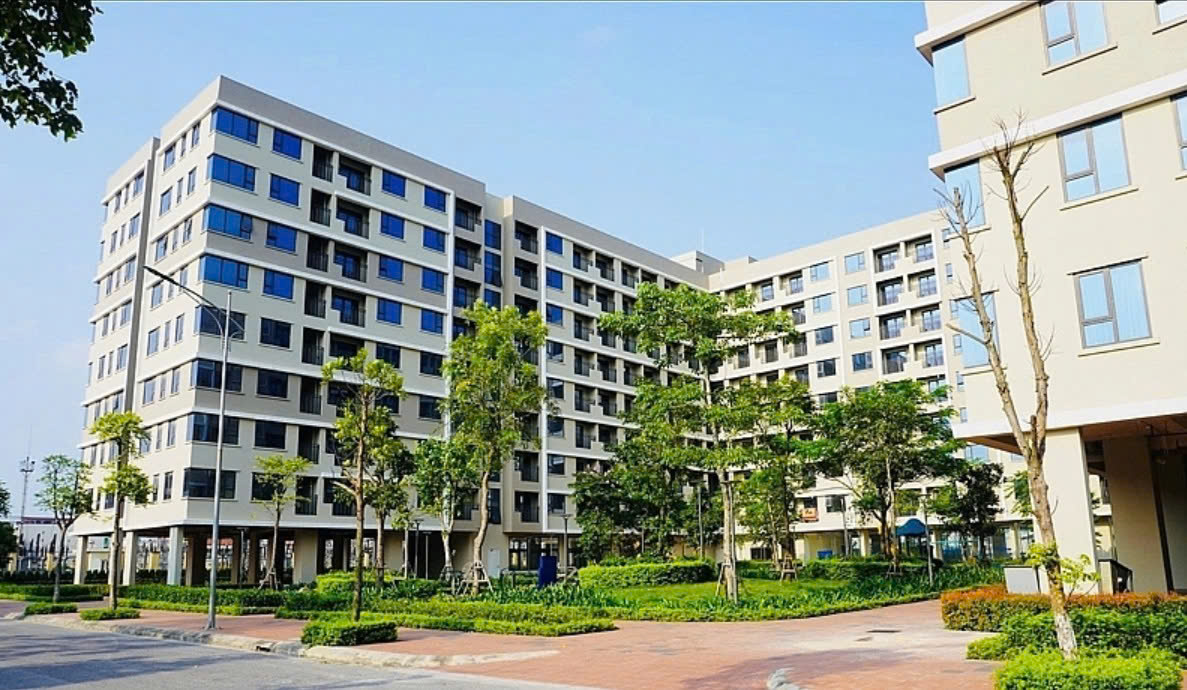(CLO) According to HoREA's report, by 2030, that is, more than 5 years from now, Ho Chi Minh City can develop about 70,000 social housing apartments.
According to a report by the Ho Chi Minh City Department of Construction, from 2021 to present, the city has 10 social housing projects, of which 6 projects have been completed, 4 projects are under construction with a total of nearly 6,000 houses.
Regarding this issue, Mr. Le Hoang Chau, Chairman of the Ho Chi Minh City Real Estate Association (HoREA), said that the above modest results pose many challenges for the city to implement.
In fact, the Prime Minister assigned Ho Chi Minh City the target of having 69,700 - 93,000 social housing apartments by 2030. Thus, in just over 5 years, Ho Chi Minh City must build at least 60,000 social housing apartments.

Illustration photo. (Source: ST)
According to Mr. Chau, the biggest problem is the lack of coordination between departments, branches, districts and counties where social housing projects are located.
Specifically, on December 4, the Ho Chi Minh City Department of Construction chaired a meeting with 14 enterprises with 20% land fund to serve the Conference on promoting social housing investment. However, some departments and branches only sent Deputy Heads of Departments to attend the meeting, and even asked to leave early.
Besides, one of the major problems is preferential capital and credit incentives for investors in social housing projects.
Mr. Chau said that the big problem in the period from now to 2030 is that investors of social housing projects will not be able to borrow preferential loans from the Social Policy Bank.
Because, Decree 100 stipulates: In the period up to 2030, the Social Policy Bank has not yet provided loans to investors of social housing projects, housing for the people's armed forces, individuals building or renovating and repairing houses for rent.
"This regulation has invalidated the preferential credit policy for social housing project investors to borrow preferential credit from the Social Policy Bank," said Mr. Chau.
Thus, currently, investors of social housing projects can only borrow preferential credit from the Vietnam Development Bank or credit institutions designated by the State Bank.
Therefore, Mr. Chau Hoi suggested that the Ministry of Construction consider proposing to the Government and the Prime Minister to consider abolishing some regulations in Decree No. 100 so that investors of social housing projects can borrow preferential credit from the Social Policy Bank.
In addition, Mr. Chau proposed that the City People's Committee direct the Departments, branches, People's Committees of districts, towns, and Thu Duc city to strengthen synchronous and smooth coordination, promptly remove "legal obstacles" and propose to develop "simple and shortened" investment procedures for social housing projects, so that investors of social housing projects can consider implementing the project soon, as in the cases of social housing projects mentioned above.
At the same time, Mr. Chau proposed that the National Assembly Standing Committee consider allowing a pilot implementation of the mechanism of assigning the Department of Construction to carry out the procedure of "approving investment policies for social housing projects" similar to projects to renovate and rebuild apartment buildings.
Previously, on December 6, the Ho Chi Minh City People's Committee held a conference to promote investment in social housing construction in Ho Chi Minh City until 2030. At this conference, 21 enterprises registered to invest in social housing construction on land funds created by enterprises themselves with about 52,000 apartments.
Of which, 9 enterprises registered to participate in investing in building social housing at specific land fund addresses under the enterprise's ownership with about 40,000 apartments.
12 enterprises registered and committed to finding land in the city to invest in building social housing with about 12,000 apartments and combined with 7 land plots that the City called for investment in building social housing with about 8,000 apartments along with 10,000 social housing apartments that the City planned to invest in publicly.
Thus, Ho Chi Minh City can develop about 70,000 social housing apartments by 2030, meeting the target of 69,700 apartments (the "low level" target) and the City is determined to strive to achieve the goal of developing 93,000 social housing apartments (the "high level" target) by 2030.
Source: https://www.congluan.vn/den-nam-2030-tp-hcm-co-khoang-70000-can-ho-nha-o-xa-hoi-post324688.html






























![[Photo] National Assembly Chairman attends the seminar "Building and operating an international financial center and recommendations for Vietnam"](https://vphoto.vietnam.vn/thumb/1200x675/vietnam/resource/IMAGE/2025/7/28/76393436936e457db31ec84433289f72)






































































Comment (0)